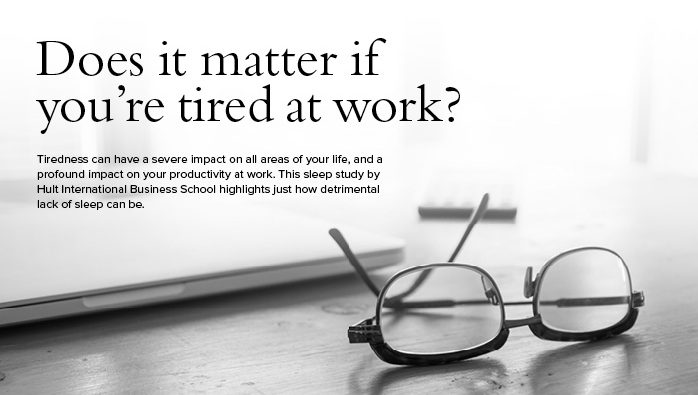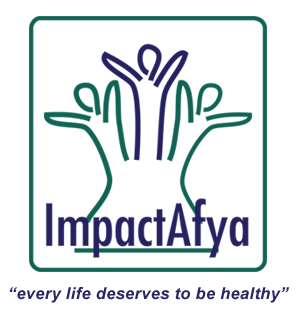How Sleep Deprivation Affects Work Performance (Published in The Guardian of 21/03/2017

“It is common for managers and colleagues to look at a lack of focus or motivation, irritability, and bad decision making being caused by poor training, organizational politics or the work environment. The answer could be much simpler – a lack of sleep.”
From The Wake-Up call: The importance of sleep in organizational life, Hult International Business School.
In today’s globalized, hyper-connected and “always on” working culture, we are spending longer hours at work in office and at home leading to lack of sufficient sleep. There is mounting evidence suggesting that sleep deprivation is a “hidden threat” that organizations need to pay attention to if they want to ensure staff well-being while gaining a competitive edge.
Recent research released by Hult International Business School reports the potentially damaging sleep deprivation among professionals. The research based on a survey of over 1,000 professionals at all levels, examined the impact of sleep on workplace performance. The findings suggest that lack of sleep can fundamentally hinder managers to perform at their peak and lead to other damaging physical and emotional side effects.
Many survey respondents reported poorer workplace performance due to tiredness, with over half admitting to struggling to stay focused in meetings, taking longer to complete tasks, and finding it challenging to generate new ideas. Along with a lack of focus and diminished creative capacities, participants also indicated a reduced motivation to learn and being less able to manage competing demands.
The cumulative effect of sleep deficit seems to be contributing to a less productive workforce, compounded by a cycle whereby workers are less productive during business hours because they are tired, and so they have to bring work home, thus accumulating a sleep debt.
Sleep Deprivation Affects Physical Health
The physical effects of tiredness can be significant. According to one study reported in JAMA Internal Medicine, people who averaged less than seven hours of sleep were nearly three times more likely to develop a cold. More troubling are the potential long-term effects of sleep deprivation leading to serious medical conditions such as obesity, heart disease and diabetes.
Chronic Tiredness Damages Social, Emotional and Psychological Well-being
Lack of sleep also has a profound impact on our feelings and mood. Subtle effects of poor sleep can prove challenging in an organizational environment. Teamwork and communication play a vital role on corporate environments and are critical to professional success. A significant number of respondents in Hult’s sleep-related research found the interpersonal aspects of their role especially difficult when tired. An overwhelming 84% of those surveyed felt more irritable as a result of poor sleep and well over half of the respondents reported experiencing higher levels of stress, anxiety and feeling of frustration.
Lack of Sleep Has Potentially Dangerous or Disastrous Outcomes
Along with emotional impact, sleep deprivation can take a toll on the cognitive abilities including perception, judgment, reaction time, and decision-making. Diminished cognitive performance can have huge repercussions on professionals whose jobs demand critical attention to detail, such as surgeons, pilots and drivers.
It has become evident that the effects of sleep-deprived workforce can be disastrous. The Three Mile Island nuclear meltdown, the Chernobyl Nuclear explosion, the Exxon Valdez oil spill, and the Challenger space shuttle disaster were all the result of human error caused by sleepiness.
Whether it is improving workplace productivity or averting large-scale disasters, better sleep is clearly better for business. At a recent Corporate Sleep Health Summit hosted by Harvard Medical School, it was concluded that:
Sleep Affects Not Just Productivity, but Innovation
Lack of sleep affects the prefrontal cortex of the brain, the area that controls innovation, self-control and creativity. The effects of prolonged wakefulness on innovative thinking can be damaging to corporate objectives.
Sleep Deprivation and Stress are a Vicious Cycle
Stress prevents sleep. In turn, Sleep deprivation increases stress and its consequences. Our work lives are causing us to become stressed, and in turn, we are less able to get our work done because we are not getting enough sleep. One study found that 24 hours of sleep deprivation can raise stress hormone levels.
24/7 jobs Are Taking a Big Toll on Sleep Health
Changing work cultures and constant connection to smartphones means that we never really turn off. “As a result of us being so connected, we are not only having a negative effect on ourselves, but we are having a profound effect on those with whom we work”, Said Leslie Perlow, Harvard Business School Professor.
Corporate Wellness Programs need to Address Sleep and Stress
Promoting healthy sleep habits through corporate wellness programs and encouraging employees to unplug more during evenings, weekends and vacations can be a starting point for tackling sleep deprivation amongst our workforce.
Creating environment for healthy sleep
- Make sure everyone leaves work at “Home time”
- Allow time to exercise during working day
- Don’t send emails after normal working hours
- Provide tryptophan rich snacks such as milk and bananas
- Consider flexible working hours where people work the hours they are most productive
- Most important, educate your people on the impact of sleep deprivation at work
Reply back to bhakti@impactafya.com or call +255 754 694 643 with your feedback. We welcome your suggestions for corporate wellness issues you’d like to see covered in our future columns.
Bhakti Shah, MPH is the Founder and Managing Director of ImpactAfya Ltd, collaborating with Workplace Options and Mayo Clinic, USA to provide Corporate Wellness and EAP Solutions in East Africa. Bhakti is also the Past President of the American Chamber of Commerce in Tanzania and the Chair for Health Concerns for Rotary District 9211.
Website: www.imapctafya.com | Facebook, Instagram & Twitter: @impactafya
